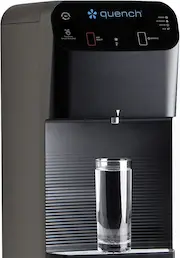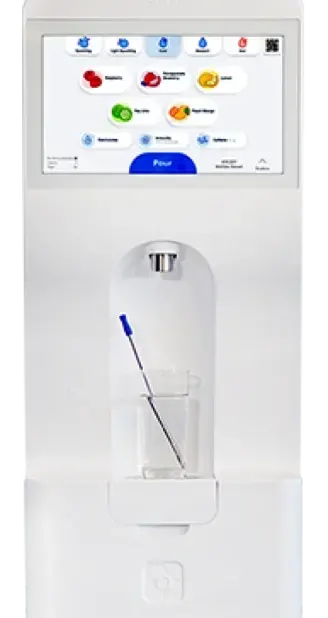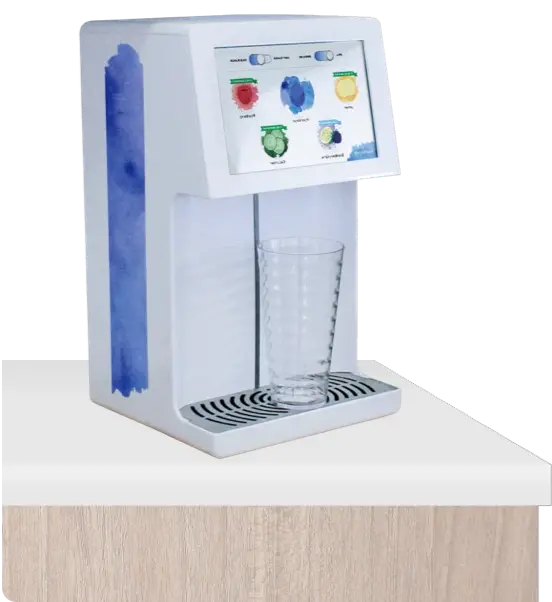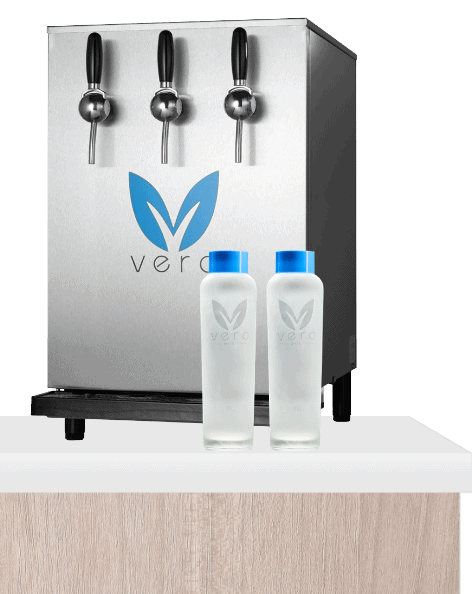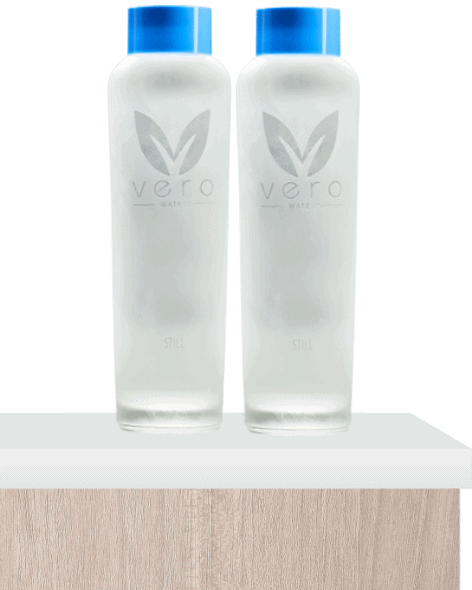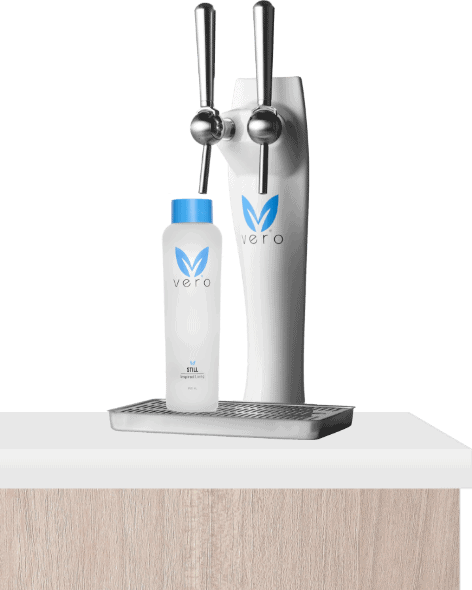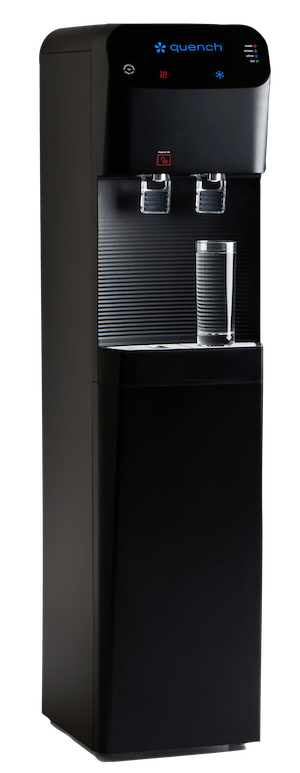Environmental consciousness is more important than ever for employees and customers alike. With an increased emphasis on sustainability worldwide, organizations across the hospitality industry are in search of strategies to lessen their environmental impact.
Read on to explore why calls for responsible resource management are on the rise, the best practices hotels can leverage to boost their environmental efforts, and the top solutions playing a pivotal role in helping teams achieve their sustainability goals.
What Are Sustainable, Eco-Friendly Hotels?
A sustainable hotel is an eco-conscious lodging establishment that aims to minimize its environmental impact while continuing to provide a great guest experience. Introducing improved sustainability practices is typically aimed at promoting an organization’s corporate social responsibility (CSR). Hotels in pursuit of eco-friendly objectives prioritize responsible resource management, energy efficiency, and reduced waste production to ultimately create a more harmonious and conscientious travel experience.
Hotels are striving to attain the three pillars of sustainability, often referred to as the 3Ps, which include initiatives to reduce their environmental and carbon footprint. The 3Ps of a sustainable hotel include:
- Planet: Hotels can introduce eco-friendly practices like energy-efficient lighting and water conservation systems to reduce their environmental footprint.
- People: Sustainable hotels often support local communities through job opportunities or hosting events for cultural engagement.
- Profit: Enhancing CSR efforts and implementing cost-saving measures, such as waste reduction and energy efficiency, drive a hotel’s business results in the long term — while demonstrating a commitment to maintaining sustainability.
What Is The Extent of a Hotel’s Impact on The Environment?
The hotel industry is a significant contributor to tourism, generating a considerable amount of employment and economic revenue, yet it’s also one of the most energy-intensive sectors. This means that, by nature, hotels have a substantial environmental impact. According to the World Tourism Organization, hotels and various accommodations contribute to 2% of the total 5% of global carbon emissions linked to the tourism sector.
What’s more, most studies indicate that hotels typically consume 100 to 200 gallons of fresh water daily per occupied guest room. This translates to 36,500 to 73,000 gallons per room annually; not to mention the U.S. Energy Information Administration’s Commercial Buildings Energy Consumption Survey reveals that hotels and motels use an average of 14 kilowatt-hours of electricity and 49 cubic feet of natural gas per square foot every year.
Sustainable Hotels: The Future of the Hospitality Industry
Today, both consumers and employees are increasingly advocating for more sustainable business practices, and the hotel industry is no exception. A survey conducted by IBM reveals that 67% of employees are more willing to apply for, and 68% are more willing to accept positions from, environmentally sustainable companies. Moreover, Statista indicates that, as of February 2022, 78% of travelers report that they intend to stay in an eco-friendly or green accommodation at least once when looking at the year ahead.
With this in mind, hotels are increasingly recognizing that sustainability is no longer just a moral obligation, but a strategic advantage in a competitive industry. Here’s a closer look at the main contributing factors behind growing sustainable hotel practices:
- Environmental concerns are on the rise: Because the planet’s health is everyone’s concern and global environmental issues are intensifying, hotels are working to meet eco-friendly demands and set the standard for responsible travel.
- Sustainability is profitable: While many organizations assume that sustainability initiatives are too expensive, this isn’t the case. In fact, it’s increasingly viewed as a path to revenue growth, providing substantial cost savings in the long run.
- Organizations must consider compliance and legal requirements: To minimize environmental degradation, governments worldwide are tightening regulations, making sustainability a legal necessity today. This is forcing hotels to adapt, leading to reduced energy consumption and resource utilization.
Sustainable hotels are ultimately poised to lead the future of the hospitality industry by aligning their practices with the demands and requirements above — positioning themselves as leaders in a changing world and helping to create a better planet for future generations.
5 Best Practices To Boost Hotel Sustainability
Consider the following sustainable practices hotels can introduce to reduce their environmental footprint:
1. Introduce A Bottleless Water Dispenser
Hotels provide a lot of water to their guests, typically in bottled form, because of their commitment to cleanliness and safety. However, this common perception of bottled water as the cleanest option isn’t entirely accurate. What’s more, bottled water is associated with significant wastage, including plastic containers and the carbon emissions resulting from delivery trucks transporting water to hotels.
By introducing a bottleless water dispenser from a dependable water service provider, like Quench, hotels can significantly boost their sustainability efforts. This eliminates the need for single-use plastic water bottles, not to mention the associated carbon emissions from production and transportation. Plus, these systems connect directly to your building’s water line, so you can provide unlimited access to clean, filtered water for guests and employees year-round.
2. Opt For More Energy-Efficient Lighting
Energy-efficient lighting is seemingly simple, but it’s a crucial step in hotel sustainability. It not only reduces energy consumption but also boosts the guest experience and showcases your commitment to environmental responsibility. For more energy-efficient lighting, your hotel can:
- Transition to LED lighting: LEDs are more energy-efficient than incandescent or fluorescent bulbs, and they have a longer lifespan, which reduces maintenance costs.
- Implement motion sensors: Install motion-activated lighting in guest rooms and common areas. This ensures that lights are only on when needed to conserve energy.
3. Promote Waste Reduction And Recycling
According to a study featured on Emerald Insight, hotels worldwide produce an average of 289,700 tons of waste each year, 79,000 tonnes of which is food waste. As a result, systems for waste reduction and recycling in hotels are essential to minimize landfill waste and promote responsible resource management.
To boost these efforts, place clearly marked recycling bins in common areas and guest rooms, so they’re more accessible and convenient for everyone. You can also source recycled products for amenities and materials like toilet paper, paper towels, and stationery to reach waste reduction objectives.
4. Leverage More Eco-Friendly Amenities and Cleaning Products
Using eco-friendly amenities and cleaning products is an effective way to reduce the environmental impact of a hotel’s daily operations. This demonstrates an organization’s commitment to social responsibility, which can positively influence guest perceptions.
Here are just a couple of ways to make this change:
- Select green-certified products: Choose amenities and cleaning products that have recognized eco-label certifications, such as EcoLogo or Green Seal.
- Provide bulk dispensers: Replace single-use toiletries with bulk dispensers for shampoo, conditioner, and soap. This effectively minimizes your packaging waste.
5. Provide Alternative Transportation Options
Because hotels are at the heart of the tourism industry, they have a large influence on how guests explore the area. By offering alternative transportation options, hotels encourage travelers to reduce their carbon footprint, which contributes to local environmental efforts.
More eco-friendly transportation options to offer include:
- Bike rentals: Provide bicycles for guest use to promote a more sustainable and healthy mode of travel.
- Local transport services: Consider collaborating with local providers of pedicabs, electric shuttles, or public transportation, so guests have a variety of environmentally friendly transportation choices.
Key Benefits of Improving Your Hotel’s Eco-Friendly Efforts
By enhancing your hotel’s sustainable initiatives, you can expect to see several key benefits as a result:
- Improved environmental footprint: One of the main goals of hotel sustainability is to minimize your organization’s impact on the environment. With more eco-friendly processes in place, you ultimately reduce your carbon emissions and conserve resources more effectively.
- Cost savings: Sustainable practices enable your hotel to reduce its energy and resource consumption, which translates into considerable cost savings in the long run.
- Enhanced reputation: By embracing eco-friendly efforts, you can improve your hotel’s image, attracting environmentally conscious guests and employees — and potentially garnering positive media attention.
- Ensured long-term viability: In the competitive and ever-evolving hospitality industry, sustainable hotels position themselves to thrive and endure.
Drive Sustainability With a Bottleless Dispenser From Quench
When calls for environmental consciousness and sustainable tourism are louder than ever, responsible resource management is not just a choice but a necessity for the hospitality industry’s future. And, within a time of growing environmental concerns, rising demand for sustainable travel, and evolving legal requirements, eco-friendly hotels are better equipped to succeed. Hotels can take considerable steps toward their environmental goals with one simple solution: a bottleless water dispenser from Quench.
From delicious and filtered still water to premium sparkling options, Quench’s bottleless dispensers are a more sustainable, cost-effective alternative to bottled water sources. Our units are designed with versatility in mind to ensure they cater to hotels of all shapes and sizes. Plus, our sleek, modern designs complement your decor and help you boost the guest experience. So, whether it’s a refreshing glass of still water or bubbly sparkling water, Quench has you covered. To meet the growing demand for sparkling water, you might also consider the Bevi 2.0 machine, brought to by Quench, which offers tasty flavored options to your employees and guests on demand. These environmentally friendly solutions save you from bulk delivery of plastic bottles and reduce associated waste and carbon emissions.
Ready to boost your hotel’s sustainable initiatives with a bottleless water dispenser from Quench? Learn more about how we support hotels and get a free estimate to get started.
